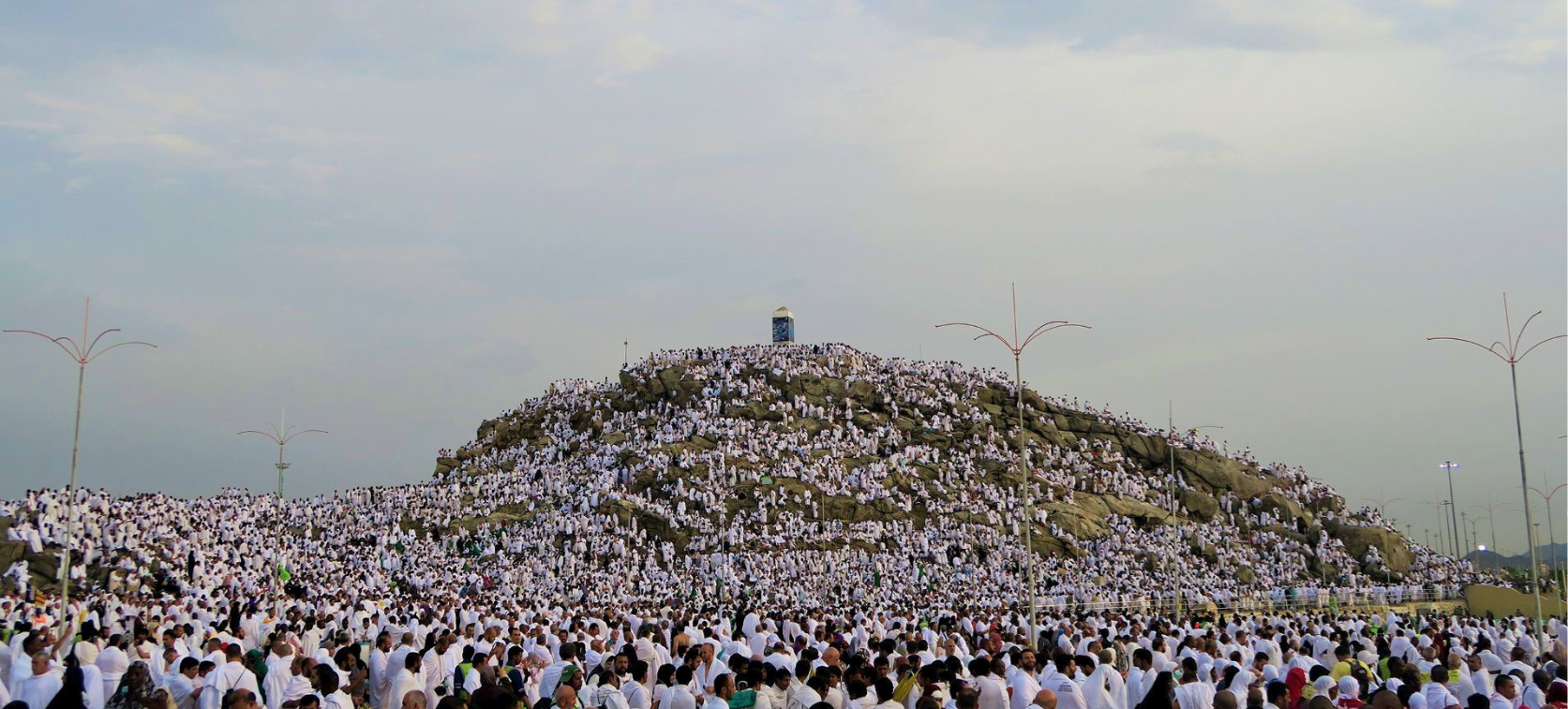On the plain of Arafat, beneath the searing Arabian sun, a man stood fourteen centuries ago and addressed the largest gathering of Muslims of his time. It was the 9th of Dhul-Hijjah, the Day of Arafat—the heart of the Hajj pilgrimage, when millions still gather today, dressed identically, stripped of status and ego, in one of the most powerful scenes of human equality. Here, Prophet Muhammad ﷺ delivered his Farewell Sermon. He spoke not from a palace, podium, or parliament, but from the dust of the earth—humble and sincere—declaring the sanctity of life, abolishing racial superiority, affirming the dignity of women, and binding believers together as one body, transcending tribe, language, and colour.
Today, the echoes of that sermon ricochet through a very different world—one that seems to have forgotten the message spoken in the desert of Arafat.
Status Has Replaced Sanctity
In that sermon, the Prophet ﷺ declared: “All mankind is from Adam and Eve. An Arab has no superiority over a non-Arab, nor does a non-Arab have any superiority over an Arab…”
Yet we now live in a world where the liberal secular system thrives on inequality disguised as meritocracy. Wealth, skin tone, postcode, and job title define your worth. Success is measured by the size of your following, not the scale of your integrity. We have replaced the white garments of equality with tailored suits of superiority. Social hierarchies—rife with elitism and discrimination—have become sacred, defended by the system itself. The secular promise of equal opportunity has birthed a status-obsessed society, blind to the very humility the Prophet modelled on the plains of Arafat.
Immigration, Nationalism, and the Return of Racism
In the Farewell Sermon, tribalism was dismantled. The Prophet ﷺ addressed a unified ummah—not divided by borders, flags, or passports.
But today, immigration dominates headlines, not because of human need, but because it threatens artificial national identities. Nationalism has become the religion of the insecure, fuelling far-right ideologies and the politics of hate. From the refugee camps in Greece to the detention centres in the UK, the immigrant is no longer a human being, but a threat. Instead of building the ummah, we are building walls. The universality of Arafat has been replaced by the exclusivity of the border.
Feminism and the Return of Misogyny
In one of the sermon’s most striking statements, the Prophet ﷺ said: “Treat women well…” and went on to affirm their rights within marriage, society, and faith.
Yet in the modern world, the rise of feminism has collided with a backlash of deep-seated misogyny. On the one hand, women are told they are liberated—free to chase careers, power, and independence. On the other, they are degraded, commodified, and constantly battling systems that were never built for them. The so-called “gender wars” rage on, not because Islam failed to recognise women’s rights, but because secularism reduced gender to a battlefield, not a partnership. Feminism, in its many waves, has not healed society—it has inflamed a deeper rupture, one only addressable by a system rooted in revelation, not reaction.
Gaza and the Gods of Profit
Perhaps the most haunting absence in today’s world is the loss of sanctity for human life—something the Prophet ﷺ declared inviolable at Arafat.
“Your blood, your wealth, your honour are sacred…”
In 2024 and into 2025, the world has watched, almost numbly, as Gaza has been turned into a graveyard. Children’s bodies are pulled from rubble, and global powers issue statements—then rearm the killers. The war on Gaza is not about religion or security. It is about strategic interests, arms markets, and the currency of influence. Death has become profitable. Silence has become policy. The very values Arafat stood for—life, justice, dignity—have been auctioned off to the highest bidder.
Arafat Was Not Just a Place—It Was a Blueprint
What took place at Arafat was not just a sermon. It was a final manifesto for how human beings should live together: beyond tribalism, beyond status, beyond ego. Today, the liberal secular world offers none of that. It offers more identity but less unity, more freedom but less purpose, more information but less truth.
We do not need to return to the desert—we need to revive the message that emerged from it. The Farewell Sermon was not a relic; it was a revolution. And perhaps, before the world destroys itself chasing illusions, it needs to stop at Arafat once more—to listen, to remember, and to rebuild.
Need Help?
-
[email protected]
-
Follow us on Instagram
-
Follow us on TikTok
